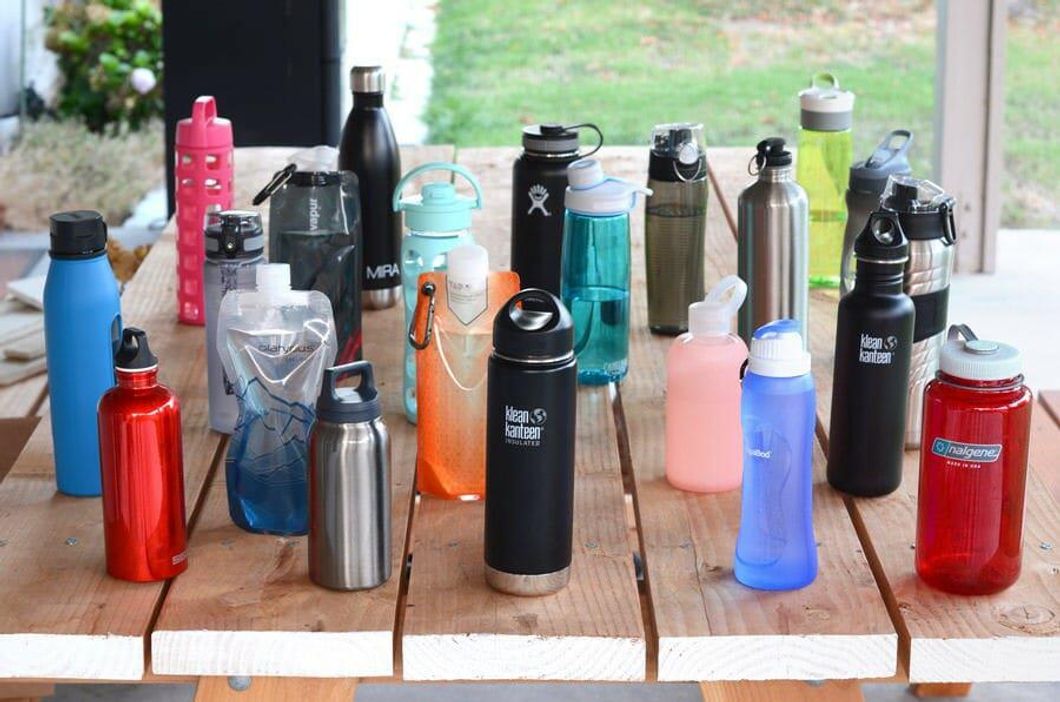Have you thought about going zero waste life, actively attempting to reduce your carbon footprint in the world? It involves more than just storing food in trendy mason jars, buying fresh produce at farmers' markets, and making products from scratch. It's a lifestyle dedicated to cultivating meaningful experiences and prioritizing environmental sustainability.
Perhaps you've considered it. But without knowing the basics and getting some guidance, abandoning your dependency on plastic and the usual ways of shopping, cleaning, and eating can be pretty intimidating.
Before you embark on your own zero-waste journey, it's important to get an understanding of the lifestyle from people living it on a daily basis. We turned to some of the most popular zero-waste bloggers and Instagram influencers for their advice.
From tips in the kitchen to the most essential products, here's some wisdom from six zero-waste experts. They also address common misconceptions associated with the lifestyle. Get ready to be less wasteful ...
What is zero waste?
Chances are you've heard the words before, but you might not know the whole deal. A zero-waste lifestyle isn't simply about eating clean and purging your plastic belongings — it involves adopting a more thoughtful, minimalistic approach to living.
"Zero waste aims at eliminating as much trash from the household as possible," blogger and author of the bestselling, zero waste life, said. "What it ultimately does is translate into a simple, richer life based on experience instead of things."
How to get started
Coming to terms with the amount of harmful waste you produce on a daily basis can be seriously overwhelming, so the key is to start small and work toward achieving your larger sustainability goals.
As several zero-waste veterans stressed to me, "no one goes zero waste overnight." But there are steps you can take to ease into the lifestyle.
Use What You Have on Hand
Before buying anything new, it is best to use what you already own—even if it isn't environmentally friendly. After all, it will end up in the landfill, either way, so you may as well get some use out of it. Alternatively, if you feel you won't use an item, try giving it away to a friend you know will get used out of it. Unopened hygiene items and the like are also gladly taken by most homeless shelters.
Fight Food Waste
Single-use products and unsustainable packing are two substantial problems that zero waste aims to eliminate. One issue that gets far less time in the limelight, though, is food waste. Yet, it is a massive contributor to global warming, with America alone wasting 80 billion pounds of food annually. The good news is you can start fighting food waste right at home. And it doesn't have to be complicated.
Compost:
Whether it is a backyard compost pile or a program provided by your city, composting is key. When waste like spoiled food and produce are thrown into the trash, they decompose without any air, which causes them to release greenhouse gases like methane. Contrastingly, composting allows airflow as decomposition occurs, eliminating this toxic release.
Plan Your Meals:
Meal planning means you know exactly what ingredients you need, so you are far less likely to buy things that will spoil from not being used. To use an ingredient in its entirety where recipes call for small amounts, like celery and carrots, you may want to consider planning meals with similar ingredients. Or, for food that freezes well, double the recipe and freeze half the batch for a later date.
Use Produce Entirely:
You are missing out on some great opportunities by tossing vegetable and fruit peels. For example, banana peels are great for making fertilizer, banana tea and even vegan pulled "pork". While vegetable scraps can be saved in the freezer and eventually boiled in water to make a nutritious vegetable broth.
Clothing:
Quality clothing will look better longer and is much more resistant to wear and tear. However, before buying something new, it always best to love what you have first. If you are craving a new piece or two, you may want to consider secondhand shops or doing a clothing swap with a friend, or hosting a larger scale swap in your community. Secondhand clothing is especially great for kids since they often outgrow it before it is even close to being worn out.
Reducing your waste doesn't have to be hard, expensive, or perfect. By taking it slow and tackling only a few changes at a time, going zero waste can be a sustainable lifestyle that will benefit both you and the environment.































